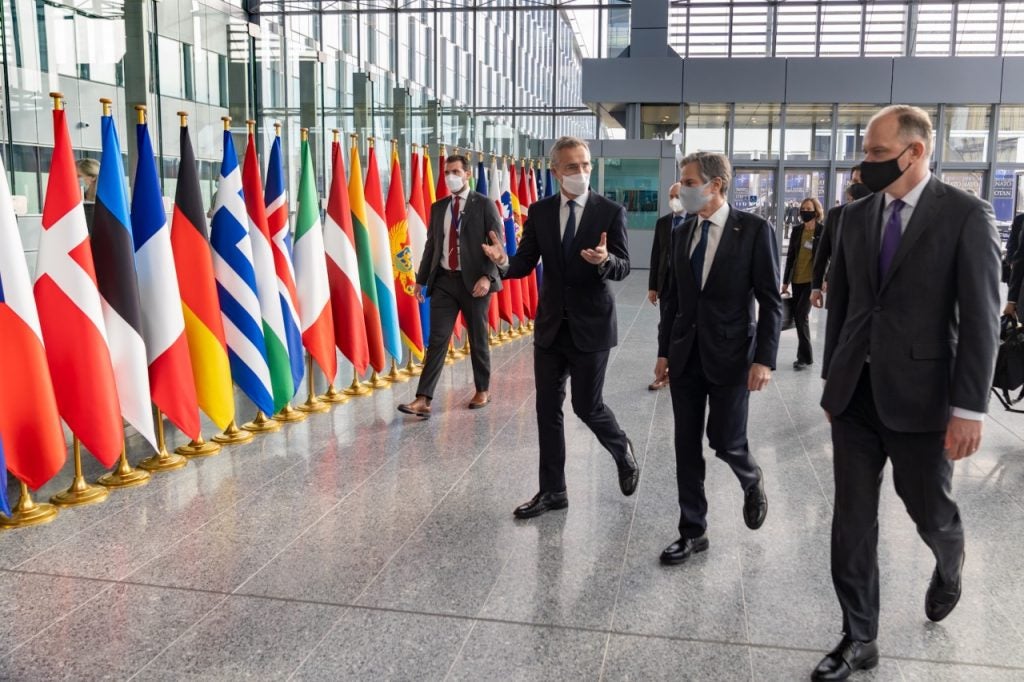Stoltenberg and Blinken Define NATO as a Cornerstone of the International World Order
Just hours ahead of the NATO Summit which saw NATO members’ foreign ministers meet on 23 and 24 March, U.S. Secretary of State Anthony Blinken sat down for a discussion with NATO Secretary General Jens Stoltenberg. The meeting marks the first trip to Europe made by Blinken as Secretary of State but not his first overseas visit nor the first to focus on international defense issues; Asia was the first destination chosen for such a diplomatic effort by the new US administration. The meeting comes just barely a week after Secretary General Stoltenberg published his 2020 Annual Report.
Aside from the usual reassurances of a strengthened Euro-Atlantic Alliance, the two men discussed the future of NATO with Stoltenberg presenting his vision of NATO 2030. In this vision, the core mission of the alliance is not to counter Russian power but rather to uphold the rules-based international order built on Western democratic values. Democracy has declined globally while authoritarian states are growing in power and becoming an increasing threat to NATO members. The general secretary called for a closer partnership with democracies in the Indo-Pacific region. To quote
Stoltenberg directly:
“At the summit, we will set an ambitious transatlantic agenda for the future to reinforce our unity and solidarity and ensure we remain strong both as a military and as a political Alliance to broaden our approach to security: by strengthening our resilience, preserving our technological edge, addressing the security impact of climate change and working more together. And to take a more global approach by protecting the rules-based international order, which is being challenged by authoritarian powers like Russia and China.”
NATO, an organization built to counter the Soviet bloc in Europe during the Cold War, has been accused by some (especially Russian and China) of being outdated. In the absence of a powerful common threat, NATO has indeed struggled to redefine its existence, especially with the perceived failure of NATO intervention in the Middle East. However, in the face of new emerging threats to America and Europe in the form of authoritarian great powers which is increasingly becoming recognized on both sides of the Atlantic, NATO has been given an opportunity to firmly reassert its importance. A willingness of Europe to impose sanctions on China, German and French deployments of naval assets to the Pacific and increasingly close cooperation between the UK and Japan have all shown that Europe is becoming committed to a geopolitical struggle which expands further than to the border with Russia.

